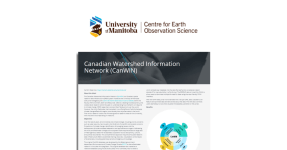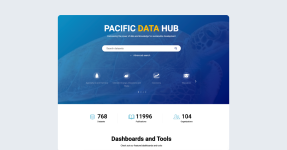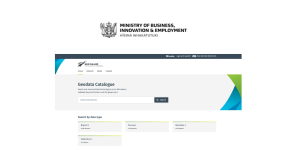Two reports released at the end of 2023 outline the Australian Government’s policy directions in the data and digital space, and the linkages it intends to create between making data more open and shareable and issues such as improved service provision and encouraging more effective and participatory forms of governance: the final version of the Data and Digital Government Strategy: The data and digital vision for a world-class APS to 2030; and the Third Open Government Partnership National Action Plan, 2024-2025, developed as part of the Australian Government’s obligations as a member of the Open Government Partnership (OGP).
The Data and Digital Government Strategy follows the same structure as the draft version released for consultation in mid-2023, outlining five ‘missions’ and steps to achieve them.
- Using ‘data and digital technologies to deliver connected, accessible services centred around the needs of people and business.’ The document seeks to maximise the value from data and data sharing, with appropriate safeguards to ensure privacy. It also requires ‘all government entities to make non-sensitive data open by default in compliance with relevant laws and appropriate privacy, security and ethical controls for sharing sensitive data.’
- Stipulating a ‘digital by design’ focus for the APS (Australian Public Service), that will see it work as ‘a single, unified enterprise,’ using ‘technology, data and analytics to deliver simple, accessible services for people and business.’
- Harnessing the opportunities presented by new technologies such as generative AI and quantum computing, while actively monitoring and managing the potential risks.
- Partnering ‘with people and business to make decisions and deliver trusted, transparent and ethical services and support people’s choices when engaging with public services.’ This includes creating ‘robust privacy and security settings and a culture of integrity and accountability will give people and business confidence their data is safe.’
- Building a data and digitally capable APS.
Positives in the Data and Digital Government Strategy
Informed by the consultation process, which included Link Digital, the Data and Digital Government Strategy is obviously more thought out and detailed than the draft. It shows a government that wants to be on the front foot in terms of data and digital positioning and sets out a comprehensive schedule of associated reform activities. These include a review of the 2021 Intergovernmental Agreement on Data Sharing, which commits all jurisdictions to share public sector data as a default position and the principles by which this should be done. There is a commitment to develop an Australian National Data Integration Infrastructure in collaboration with the states and territories to support data sharing, integration, and national linkage for the National Disability Data Asset. There will be periodic reviews of the Data Availability and Transparency Act 2022 governing the DATA Scheme, the framework for sharing of data from all Australian Government entities save those excluded on national security grounds. Connections are also made to the relevant findings of recent reviews of the Privacy Act 1988, the Royal Commission into the Robodebt Scheme, the 2023 myGov User Audit, and the recent inquiry into the role of the National Archives in the protection, preservation and use of Commonwealth information.
The final document contains a greater focus on government seeking out partnerships with the private sector, academics, and community sectors on co-design solutions. This includes working with the private sector on data sharing, greater engagement with state and territory governments, and ‘engaging with industry and global experts to stay informed of the latest tools, technologies and methodologies in data and digital capability development.’ There is also an explicit commitment to engage with the OGP to promote accountability using data and digital technologies.
There is a more fleshed out conception of the ‘tell us once’ approach to organise and tailor services to individuals’ circumstances, centred on a nationally consistent approach to a secure opt in Digital ID for individuals. While many details need to be worked out, this would potentially make it easier for government’s and third party organisations to prove people’s identities, in other words to provide verifiable claims to citizens based on a minimum of personal data, while protecting people from threats such as identity theft. Link Digital was particularly happy to see the important lessons of the Royal Commission into the Robodebt Scheme cited at several points in the document, particularly in relation to the design of these systems and the need for greater oversight of automated decision making and data-matching programs.
In our comments on the draft, Link Digital argued for a greater emphasis to be placed on how the APS’s data and digital transformation can help counter broader societal threats such as the spread of deliberate disinformation and contribute to the creation of more resilient public institutions. This disinformation threat appears to be covered off in the draft Communications Legislation Amendment (Combatting Misinformation and Disinformation) Bill 2023 currently before federal parliament. The Data and Digital Government Strategy’s threat focus centres on how to build trust in government services, especially related to the handling of personal information, improved cyber security against the activities of ‘malicious state and non-state actors,’ and the potential dangers from emerging technologies such as AI. An explicit link is made to the new 2023-2030 Australian Cyber Security Strategy which focuses on strengthening the capacity of individuals and small and medium sized businesses to deal with cyber-attacks and the protection of critical infrastructure. The Australian Cyber Security Strategy is accompanied by a national Cyber Security Uplift Plan ‘which will drive a strategic and pragmatic approach to enhancing collective cyber resilience, building capabilities and lifting cyber security to help Australian people and business with cyber incidents.’
Missed opportunities
Although we welcome the emphasis on external partnerships and the commitment to increase data and digital literacy across the APS, Link Digital believes this area of the strategy represents a lost opportunity by not explicitly mentioning the open source community as a source of much needed skills and knowledge. The document remains largely focused on a centralised in-house model of workforce development for the APS, closing it off from the benefits that would directly flow from broader collaborations with groups like the open source community, including exposure to new talent and new skills, ideas and partnerships. This is especially an issue given Government is competing with the private sector for a limited talent pool of data literate recruits. More seriously, version 2.0 of the Digital Transformation Agency’s Digital Service Standards – recommended principles government agencies should adopt when creating digital services – released in December 2023, completely omits version 1.0’s mention of open source by default in favour of a vague commitment to open data and standards. This could complicate the core commitment in the Data and Digital Government Strategy to using ‘technology, data and analytics to deliver simple, accessible services for people and business.’
Another concern arises from aspects of the Metrics Framework that accompanies the Data and Digital Government Strategy. One stated metric in relation to delivering for people and businesses is ‘# of data assets discoverable and available for use’. While this was certainly an early metric adopted by the open data movement, it has fallen out of favour for being highly malleable and ignoring important issues such as data quality. This is something picked up in recent studies, including work by Pavel Krasikov and Christine Legner,[1] and the ninth edition of the 2023 Open Data Maturity Report conducted by data.europa.eu. The latter outlines other indicators relevant to evaluating the performance of countries in making public sector information available and encouraging its re-use. Another problematic metric used by the Australian Government is ‘% of people who trust public services.’ Link Digital would suggest the concept of ‘trust’ is highly subjective and that a more relevant question is how to measure steps taken to improve the trustworthiness of systems.[2] The metrics used by Open Data Institute (ODI) to measure delivery of their data principles are useful here. One indicator deals with whether ODI data and data principles are trustworthy, and states: ‘We will govern data in ways that ensure compliance with legal and societal norms, and reduce the risk of harmful impacts to individuals and communities. We understand the provenance and quality of the data we collect, use and share and communicate its suitability for purpose.’
Australia re-engages in the OGP
The OGP was founded in 2011 as a partnership of government leaders and civil society groups working to promote transparent, participatory, and accountable governance. Government members are required to develop National Action Plans (NAP) outlining concrete steps towards open government, through a multi-stakeholder process that actively engages citizens and civil society. While Link Digital may have hoped for a slightly more ambitious document, the Third Open Government Partnership National Action Plan 2024–2025 signals the Government’s thoughtful re-engagement with the OGP. Australia’s second plan was delivered late and the deadline for the third missed altogether, jeopardising Australia’s continued membership.
The NAP contains eight commitments, several of which link to data and digital. The NAP commits to increase transparency around the use of automated decision making and AI, including the development of a consistent legal framework for government agencies and enhanced protections for personal information handling by entities subject to the Privacy Act 1988. Another commitment is the development of an ‘Integrity Strategy for the Australian Public Service’. This builds on the current Government’s agenda of strengthening integrity across the APS, particularly in the wake of the Report of the Royal Commission into the Robodebt Scheme.
Two commitments focus on processes already underway to make government and private sector data more open. These include beneficial ownership reform and making political financing more transparent. Flowing from a government consultation process in 2022, beneficial ownership reforms would introduce requirements ‘for companies to record information about who ultimately owns, controls and receives benefits from a company operating in Australia’…‘This commitment ensures that adequate, accurate and up-to-date information on beneficial ownership and control is available in a timely manner to relevant authorities and the public. This information will increase corporate accountability, and help to address and prevent tax evasion, money laundering, terrorism financing, and corruption.’
Amending national political donations laws was the subject of a federal parliamentary committee inquiry into the 2022 federal election. This recommended, amongst other measures, lower donation disclosure thresholds and expediting the reporting of donations. These changes would add to data on the public record that could then be used to independently verify claims made by political interests, of the sort discussed in this article on our site in November. The article discussed overseas initiatives involving the creation of online portals that take publicly available datasets, including political donation and lobby registers, etc, and make it easily searchable. Picking up on concerns about online-disinformation, the NAP also commits to improve media literacy in culturally and linguistically diverse communities, including to counter the impacts of mis-and dis-information.
Topics like the one in this post are discussed in a series of forums being held by Link Digital on the last Thursday of every month, Australian EDT. These forums will connect you with like-minded experts who are passionate about the importance of open data and want to stay updated on the latest developments in the field. They are free to attend and open to everyone. Register today.
[1] Krasikov, Pavel, and Christine Legner. “A Method to Screen, Assess, and Prepare Open Data for Use.” ACM Journal of Data and Information 15, no. 4, Article 43. October 2023. https://dl.acm.org/doi/10.1145/3603708 In particular, see table 10, which summarises existing open data considerations in terms of design considerations.
[2] This issue was discussed by Link Digital Chair Steven De Costa in a November 2023 keynote on ‘The Architecture of Trust: Open and Honest Data,’ to the Canadian Open Data Society’s Summit.



